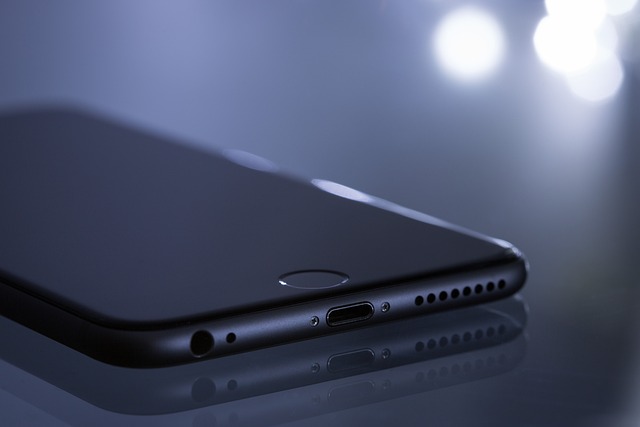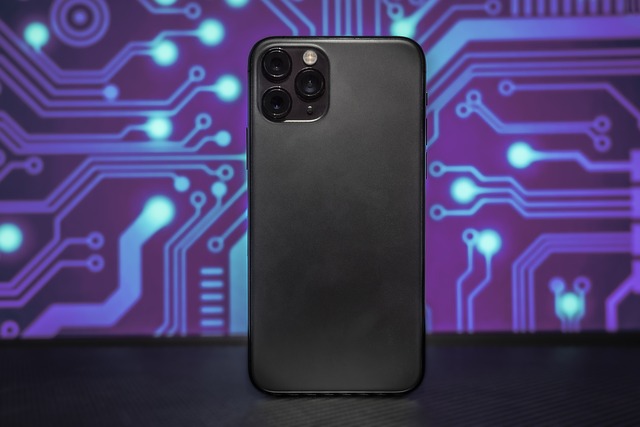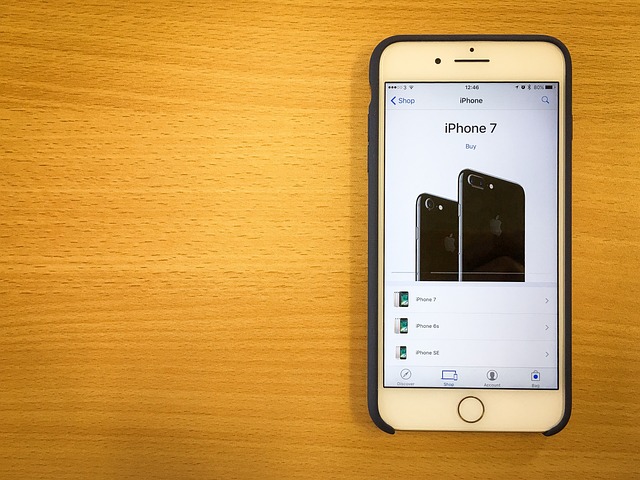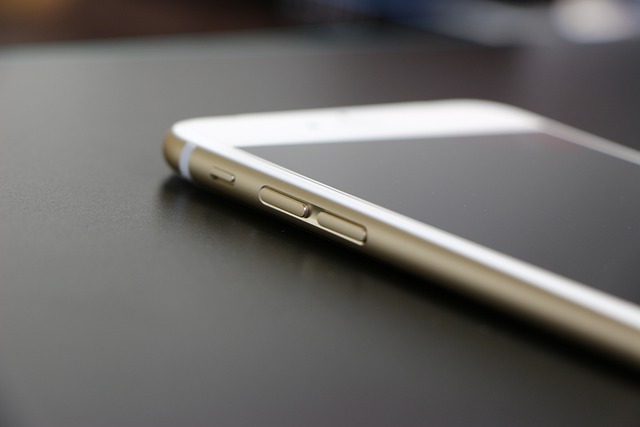When your iPhone's battery starts to wane, it's crucial to replace it with a compatible and authentic battery that aligns with your specific usage patterns. For instance, if you rely on GPS or AR regularly, a high-capacity battery is recommended. Always ensure the battery you choose is from a reputable brand, matches your iPhone model precisely, and comes with a comprehensive warranty for peace of mind. The mAh rating should be appropriate for your daily needs, with higher capacities supporting heavier usage. When selecting between professional services at Apple Stores or third-party options, consider factors like cost, availability, and warranty while ensuring the battery's quality. Opting for a genuine OEM battery and a trustworthy provider will guarantee optimal performance and longevity of your iPhone. Remember to weigh the importance of professional service against the cost savings and convenience offered by reputable third-party services when deciding how to replace your iphone battery.
When your iPhone’s battery life starts to wane, knowing how to select a reliable replacement is key. Our comprehensive guide on replacing an iPhone battery walks you through ten essential tips, from understanding your specific battery needs to ensuring compatibility and authenticity. We delve into the importance of mAh capacity for your usage, assess safety certifications, and explore warranty options. Plus, we help you navigate cost-effective choices without compromising quality. Whether you opt for professional service at an Apple Store or a trusted third-party, our article equips you with all the necessary knowledge to make an informed decision and extend your iPhone’s lifespan. Replace iPhone battery confidently with our detailed insights.
- Understanding Your iPhone Battery Needs: Key Factors to Consider Before Replacement
- Compatibility Matters: Ensuring Your New Battery Works with Your iPhone Model
- Authenticity is Crucial: The Risks of Counterfeit iPhone Batteries
- Capacity and Performance: How to Choose the Right mAh for Your Usage Patterns
- Safety First: Assessing Certifications and Quality Standards for iPhone Batteries
- Warranty and Service Options: What to Look for in a Replacement Battery Purchase
- Cost-Effective Choices: Balancing Price and Quality When Buying an iPhone Battery
- Professional vs DIY: Weighing the Pros and Cons of Battery Replacements at Apple Stores or Third-Party Services
Understanding Your iPhone Battery Needs: Key Factors to Consider Before Replacement

When the charge on your iPhone begins to wane, it’s time to consider a replacement battery. To ensure you choose the right one, it’s crucial to understand your specific needs and the factors that influence battery performance. Firstly, assess your usage patterns; if you heavily rely on features like augmented reality or GPS for extended periods, a high-capacity battery might be preferable. Additionally, consider the model of your iPhone, as not all batteries are compatible across different generations. For instance, replacing an iPhone 12 battery with one designed for an older model could lead to incompatibility issues.
Another key factor is the brand and quality of the replacement battery. Opting for a reputable manufacturer can guarantee better performance and longevity. Certifications like QCP (Quality Certification Program) are indicators of a reliable product. Furthermore, warranty options provided by the seller should also be taken into account. A good warranty will protect your investment and offer support in case of any post-installation issues. Lastly, check user reviews and ratings to gauge the battery’s performance in real-world scenarios, as this can provide valuable insights that align with your expectations and usage habits when you replace an iPhone battery.
Compatibility Matters: Ensuring Your New Battery Works with Your iPhone Model

When replacing an iPhone battery, compatibility is paramount to ensure optimal performance and functionality. It’s crucial to select a battery that is designed for your specific iPhone model. Each iPhone variant has its own battery dimensions and chemical composition that must be matched precisely by the replacement. For instance, if you’re looking to replace an iPhone 12 battery, it’s essential to obtain a battery that corresponds with its model’s requirements—down to the millimeter. This attention to detail ensures that the new battery will fit securely within the device, avoiding any risk of misalignment or damage during installation. Moreover, compatibility extends beyond physical dimensions; it also encompasses software recognition and compatibility. The iPhone’s operating system needs to recognize the new battery to maintain accurate battery life readings and charge efficiently. Therefore, when considering a replacement iPhone battery, verify its model-specific compatibility to guarantee seamless integration with your device’s hardware and software ecosystem. By prioritizing compatibility, you can extend your iPhone’s lifespan and enhance its performance with a reliable new battery.
Authenticity is Crucial: The Risks of Counterfeit iPhone Batteries

When considering a replacement for your iPhone battery, authenticity should be paramount to safeguard your device’s performance and your safety. Counterfeit batteries have flooded the market, posing significant risks that extend beyond subpar performance. These fake products often lack the necessary certifications, which means they haven’t been tested for safety or quality. As a result, they can lead to potential hazards such as overheating, short-circuiting, or even explosions. To ensure you’re investing in a genuine Apple battery, opt for reputable sources or directly from authorized retailers or Apple themselves. Authentic batteries not only guarantee safety and compatibility with your device but also offer the expected lifespan and reliability, ensuring your iPhone operates optimally. By adhering to this tip and sourcing an authentic replacement iphone battery, you can avoid the common pitfalls associated with counterfeit products and maintain the integrity of your phone. Remember, when it comes to your device’s battery, it’s not just about extending its life; it’s about protecting your investment and ensuring your mobile experience remains safe and uninterrupted.
Capacity and Performance: How to Choose the Right mAh for Your Usage Patterns

When considering a replacement battery for your device, understanding the capacity measured in milliampere-hours (mAh) and how it correlates with your usage patterns is crucial. A higher mAh rating indicates a larger battery capacity, which typically means a longer battery life. For instance, if you’re someone who heavily relies on location services, a high-demand app, or 5G connectivity on your iPhone, prioritizing a battery with a high mAh is essential to ensure your device can last throughout the day. Conversely, if your usage involves mostly messaging and social media with moderate screen time, a mid-range mAh may suffice without inflating your budget unnecessarily. It’s important to assess your daily power consumption habits to match the battery’s capacity to your needs. Additionally, ensure that the replacement battery is compatible with your iPhone model. For example, an iPhone 12 battery won’t fit an iPhone 8, and vice versa. By selecting a battery with the right mAh for your usage patterns, you can optimize your device’s performance and extend its operational time, especially after choosing to replace an aged battery that may no longer hold a charge as well as it used to. To ensure longevity and efficiency, always opt for a genuine OEM (Original Equipment Manufacturer) replacement battery when looking to replace iPhone battery, as these are specifically designed for your device to maintain peak performance and reliability.
Safety First: Assessing Certifications and Quality Standards for iPhone Batteries

Warranty and Service Options: What to Look for in a Replacement Battery Purchase

When replacing an iPhone battery, it’s prudent to consider warranty and service options to ensure longevity and peace of mind. A reliable warranty can protect your investment against manufacturing defects or unexpected failures. Opt for a battery replacement that comes with a comprehensive warranty from the manufacturer or a reputable third-party vendor. This warranty should ideally cover a significant period, reflecting confidence in their product’s quality. Additionally, look for service options that go beyond the standard post-purchase support. Some providers offer extended service plans, which may include battery health monitoring and replacements at no additional cost within a specified timeframe. This proactive approach to customer satisfaction can be particularly valuable if you frequently use power-intensive applications or your device is subject to extreme temperatures. Always verify the terms of the warranty and understand the service options available before proceeding with a replacement iPhone battery purchase to guarantee the best possible experience. It’s also advisable to select a provider that offers clear, user-friendly instructions for battery replacement, ensuring you can handle the replacement process confidently without risking damage to your device. With these considerations in mind, your iPhone’s new battery should serve you well for years to come.
Cost-Effective Choices: Balancing Price and Quality When Buying an iPhone Battery

When considering a replacement for your iPhone battery, it’s crucial to navigate the intersection of cost and quality. Opting for a battery that is too cheap might lead to subpar performance or, worse, compatibility issues. Conversely, overly expensive options may offer superior quality but could strain your budget unnecessarily. To strike the perfect balance, look for reputable brands known for their durable and high-quality iPhone batteries. These brands often invest in rigorous testing to ensure their products align with Apple’s specifications, providing reliable performance that justifies their cost without breaking the bank. Additionally, consider purchasing from a retailer that offers warranties or guarantees, which can provide peace of mind. This way, you can replace your iPhone battery with confidence, knowing that you’ve made a cost-effective choice that maintains your device’s optimal functionality. Remember to check user reviews and ratings to gauge the experiences of others who have purchased the same battery model. This due diligence can help you find a reliable replacement without overspending or compromising on quality, ultimately extending the life of your iPhone and ensuring consistent performance.
Professional vs DIY: Weighing the Pros and Cons of Battery Replacements at Apple Stores or Third-Party Services

When considering a replacement for your iPhone battery, a key decision lies between opting for professional service at an Apple Store or pursuing a DIY approach with third-party providers. Each option comes with its own set of advantages and drawbacks that can significantly impact both the longevity and performance of your device.
Professional services at Apple Stores are often the go-to choice for many iPhone users. The primary advantage is the assurance of quality; certified technicians use genuine Apple replacement batteries, ensuring optimal device functionality and maintaining the manufacturer’s warranty. Additionally, professional service centers offer a reliable warranty on their labor, providing peace of mind. However, this convenience comes at a higher cost compared to third-party services. It’s also worth noting that due to the high volume of business, you may experience longer wait times for an appointment.
On the other hand, third-party services can offer a more cost-effective alternative. These providers often use high-quality aftermarket batteries, which can provide similar longevity and performance at a fraction of the cost. The reduced expense allows users to allocate funds toward other devices or needs. Third-party services also tend to have shorter wait times, offering faster turnaround for those who need their iPhone battery replaced promptly. However, potential buyers should exercise due diligence when selecting a third-party provider; not all aftermarket batteries are created equal. It’s crucial to research and choose a reputable service with positive customer reviews to ensure the best outcome for your device’s replacement battery.
When the time comes to replace your iPhone battery, it’s crucial to make an informed decision. This guide has outlined ten essential tips that cover everything from compatibility and authenticity to capacity, safety, warranty, cost, and service options. By understanding your specific battery needs and the intricacies of a genuine iPhone battery replacement, you can ensure your device operates at peak performance with minimal downtime. Whether you choose professional service at an Apple Store or opt for a third-party provider, the key is to balance quality with cost effectively. Remember to verify certifications and quality standards to avoid counterfeit products that could compromise both your phone’s functionality and your safety. With these tips in hand, replacing your iPhone battery will be a straightforward process, keeping your device running efficiently for years to come.
